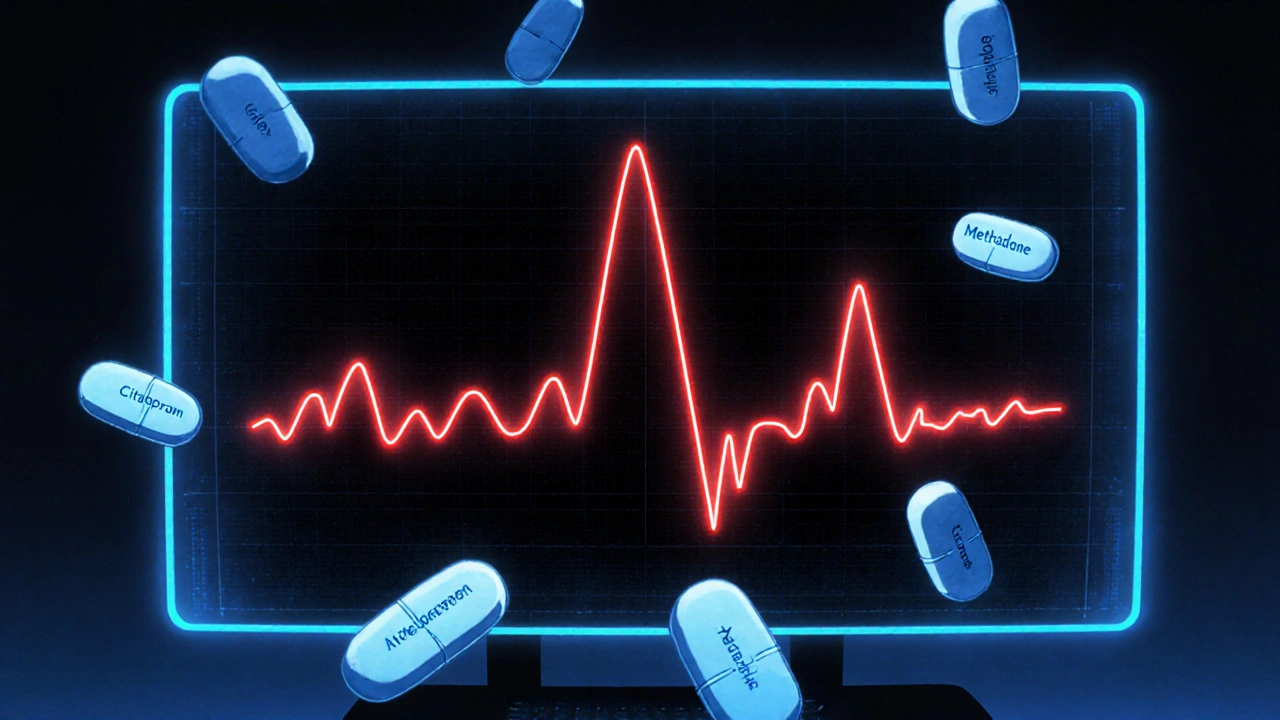QTc Interval: What It Means, Why It Matters, and How Medications Affect It
When your heart beats, it follows an electrical pattern—and the QTc interval, the corrected time it takes for the heart’s ventricles to electrically reset after each beat—is one of the most important signals doctors watch. A normal QTc is under 450 milliseconds for men and 460 for women. But if it stretches too long, your heart can slip into a dangerous rhythm called torsades de pointes, which can lead to sudden cardiac arrest. It’s not something you feel, but it’s something many common medications can trigger—especially if you’re already on more than one drug or have other health risks.
The QTc interval, a corrected measurement of the heart’s electrical recovery phase doesn’t exist in a vacuum. It’s shaped by what you take. Anticholinergics, like Benadryl and oxybutynin, can delay heart repolarization. MAOIs, powerful antidepressants used for treatment-resistant depression, also carry this risk, especially when mixed with other drugs. Even common antibiotics, antifungals, and some heart meds can push the QTc beyond safe limits. The problem isn’t always the drug alone—it’s the combo. That’s why keeping a full list of everything you take, including OTC pills and supplements, isn’t just good advice—it’s lifesaving.
Older adults, people with kidney or liver issues, and those with a family history of sudden cardiac death are at higher risk. But even healthy people can be affected if they’re on multiple medications or have electrolyte imbalances—low potassium or magnesium makes the heart even more sensitive. The good news? Doctors can check your QTc with a simple ECG. If it’s borderline or prolonged, they can swap out risky drugs, adjust doses, or monitor you more closely. You don’t need to guess whether your meds are safe. Ask your pharmacist or doctor: "Could any of my medications affect my heart’s electrical rhythm?" It’s a question more people should ask—and more doctors should expect.
Below, you’ll find real-world guides that break down exactly which medications can stretch your QTc, how to spot the risks before it’s too late, and what safer alternatives exist. From antidepressants to antibiotics, these posts give you the facts you need to talk smarter with your care team and protect your heart—without waiting for a crisis to happen.
Torsades de Pointes from QT-Prolonging Medications: How to Recognize and Prevent This Deadly Reaction
Torsades de Pointes is a rare but deadly heart rhythm caused by QT-prolonging medications. Learn how to recognize the warning signs, which drugs are most dangerous, and exactly how to prevent this preventable cardiac emergency.
